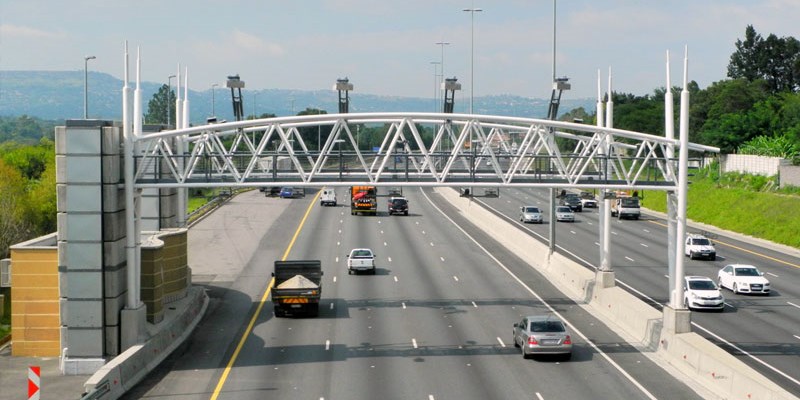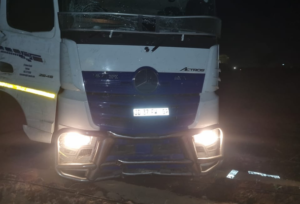
Civil action group Outa is celebrating a grand victory after finance minister Enoch Godongwana on Wednesday (26 October) sounded the death knell for the controversial Gauteng e-tolling system during his mid-term budget speech.
The minister brought the debates around the future of e-tolls to an end by announcing that the South African government, through National Treasury, would finance 70% of road agency Sanral’s outstanding debt on the project, with the remaining 30% coming out of the Gauteng provincial budget.
This amounts to a transfer of R23.736 billion from the national government to the South African National Roads Agency (Sanral) to pay off government-guaranteed debt – conditional on a solution to phase 1 of the Gauteng Freeway Improvement Project (GFIP).
E-toll debt is currently sitting at R47 billion.
While the minister did not say outright that e-tolling was over, a statement from Gauteng premier Panyaza Lesufi following the announcement made it clear that the e-toll matter was finalised.
“We believe that this…brings great relief to the people of Gauteng who have had to bear the brunt of paying e-tolls for roads which serve a national purpose,” he said.
However, with the ‘end of e-tolls’, several questions remain: what will happen to the e-toll infrastructure? What happens to outstanding e-toll bills? What about the people who have been diligently paying their e-toll bills for the last decade? And what will happen with ongoing legal action against those who refused to pay?
According to Lesufi, the Gauteng government will engage with Sanral on how the e-toll infrastructure can be repurposed. Sanral itself has already laid the groundwork for this, with the company noting plans to use its systems for a ‘mobility’ pass, with the gantries possibly being used for policing and crime fighting.
Outa, meanwhile, says the next step is for the government to start removing e-tolls from legislation.
“Ending the e-tolls has two aspects: establishing the alternative funding solution for the GFIP, and the legal dismantling of the e-tolls,” the group said.
Outa said that the minister of transport, Fikile Mbalula, should announce the way forward to legalise the situation for users of the Gauteng tolled roads as soon as possible
Sanral and the Department of Transport must retract the notices which declared the GFIP roads as toll routes, which enabled tolls to be charged, it said. This is Sanral’s responsibility, in consultation with the minister.
Regarding road users who refused to pay their e-tolls, Outa said that as far as it is concerned, they will no longer have to pay any outstanding bills.
“Unfortunately for those who paid e-tolls, we believe they will not be able to claim these payments back, as the legislation was not unlawful and was valid at the time. When the toll declaration is withdrawn, it will not be retrospective,” it said.
Lesufi said that it is up to Sanral to decide what to do about outstanding fees and what to do about those who have paid for the system.
Legal matters
Outa said that its lawyers are currently representing motorists in 2,028 cases in which Sanral has issued summonses – 99 in the high court and 1,929 in the magistrates’ courts – defending claims by Sanral over R265 million in unpaid e-tolls bills.
Read also: Gauteng Premier pledges to now focus on scrapping of e-tolls
“In each of these cases, Outa’s lawyers filed a notice of intention to defend, which prevented Sanral from obtaining default judgments against these motorists,” it said.
The group said that it will continue this defence until these matters are formally removed from the court rolls.
“Outa maintains that the e-toll decision was Sanral’s biggest mistake, sold to the government as a viable plan, and exacerbated by arrogance and an unwillingness to change its mind, when the writing was on the wall for the scheme as far back as 2012 when belated public engagement sessions made it clear that the public would not support the scheme, and that Sanral and the Government were going to have to go to ‘war’ against its citizens on this issue.
“In the end, it was an extremely costly war, which the government lost – but as it is with all government mistakes, the people will have to pick up the costs,” the group said. – BusinessTech





